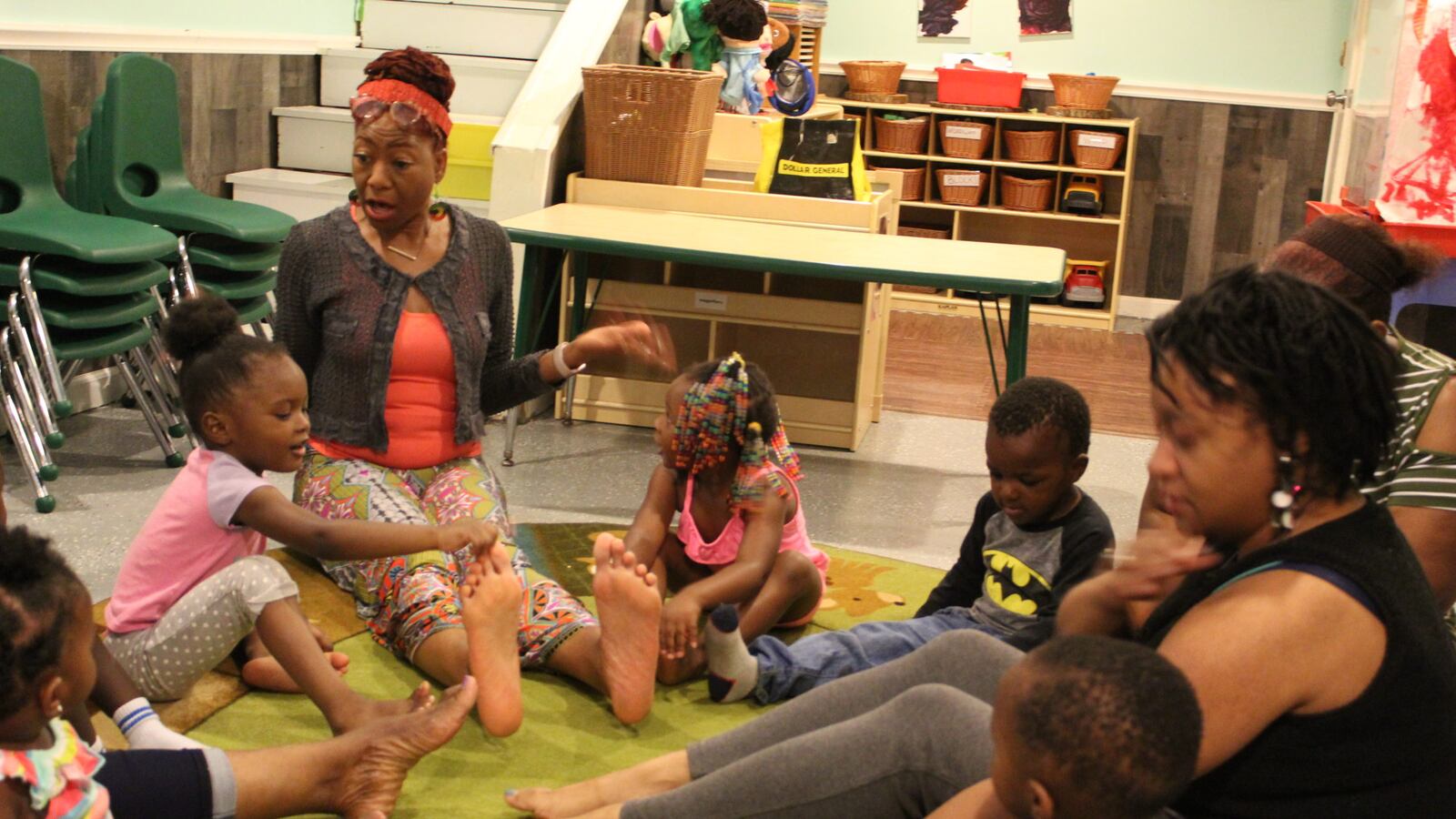As child care programs across Detroit shuttered to slow the spread of the new coronavirus, Carole Williams had no good options.
On the one hand, Williams knew that by shutting down she’d be protecting her own health and the health of the children at Agnes’ Little Angels, the day care center she runs out of her home in Detroit.
On the other, she can’t go without income from her small business for long.
“It’s my only income,” said Williams, who is 58 and has health conditions that put her at high risk if she catches the coronavirus. “It’s terrible. I had a little money saved up, so I’m working on that right now.”
Gov. Gretchen Whitmer made the decision for Williams last week, when she ordered Michiganders not to leave home for work unless they are considered essential employees, a category that includes medical staff and grocery store workers. Most child care centers around the state are now closed, part of an urgent statewide effort to slow the spread of the coronavirus.
The closures pose a danger to the state’s fragile child care ecosystem, especially in Detroit. Advocates worry that the shock of sudden closure will force centers across the city to close permanently. That’s bad news for children whose development depends on getting access to early learning opportunities, and for families who need dependable child care in order to do essential work. An estimated 28,000 children in Detroit don’t have access to quality child care.
“It’s an incredible disruption,” said Matt Gillard, director of the state advocacy group Michigan’s Children. “The road back from this is particularly challenging and fraught for the childcare industry because it is such a fragile position in the best of times.”
Unlike K-12 schools, which are generally completely funded by taxpayers, most child care providers in Michigan operate as private businesses, relying at least in part on tuition from families. If they aren’t open, they can’t earn money.
As large parts of the U.S. economy shut down in response to the COVID-19 outbreak, child care providers across Michigan began sending out distress signals. Of 602 child care providers surveyed by the National Association for the Education of Young Children, 26% said they’d be forced to close their doors without a major government intervention. More than half said they’d already lost money.
Lawmakers and philanthropists have taken emergency steps to help providers in Michigan and nationwide pay their bills and keep their doors open until the outbreak is over.
A $2 trillion spending bill approved by Congress last week includes $3.5 billion in assistance to child care providers, of which Michigan is set to receive roughly $96 million. The state announced Monday that it will also use federal money to offer $600 a month to self-employed workers whose jobs were disrupted by the coronavirus, a category that includes the owners of child care centers.
Philanthropies including the United Way and TechTown are also offering grants that can help private child care centers survive the closure.But child care advocates worry that the aid will be too little and too late for some programs.
“They need to pay them today,” said Camarrah Morgan, a parent and caregiver engagement coordinator for Hope Starts Here, a Detroit-based early childhood initiative. Providers are “scrambling trying to figure out how to get an infusion of cash. Timing matters. That might be a reason programs make it through.”
Williams said she feels confident she’ll be able to reopen.
“It’s going to be a struggle, but I know for sure that I’m going to open back up,” she said.
Other providers in Detroit aren’t so sure.
“I’m praying I can,” said Sheila Wilkerson, 60. Her only income is from her home-based child care center in Detroit. “I’m getting ready to try and pay some bills.”
On Whitmer’s orders, some child care centers across Michigan will soon reopen to care for the children of essential workers. They’ll be paid for that work, but only a small portion of all child care providers will be needed. That prospect is frightening for Felicia Legardy, a child care provider whose sister-in-law was hospitalized with what she believes is COVID-19 over the weekend.
“It seems like I’m living in a nightmare,” Legardy said.
Still, with all 17 child care providers shut down in Brightmoor, Legardy’s neighborhood on the west side of Detroit, she says she told state officials that she’d be willing to reopen. She was concerned that without child care options, children would be left at home.
Nina Hodge, owner of Above and Beyond Learning Center on the city’s east side, said she planned to reopen, but she worried that the COVID-19 outbreak would put an end to recent growth in her business.
Even after the worst of the pandemic is over in Michigan, she said, she would be slow to reopen.
“You had older staff that wouldn’t even go to church,” she said. “I’m not going to make them come in.”

